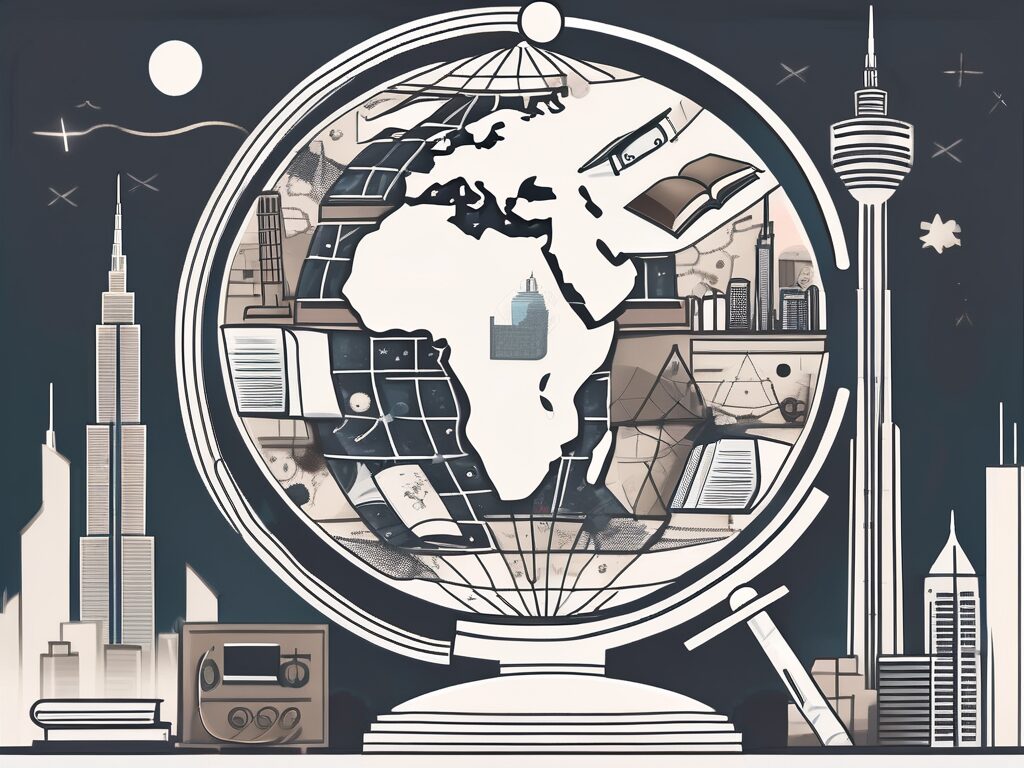html
Unlock Global Education: 5 Key Insights on International Learning
In an increasingly interconnected world, the importance of international learning cannot be overstated. As educators and students alike seek to broaden their horizons, understanding the nuances of global education becomes essential. This blog post aims to provide you with five key insights into international learning, helping you unlock the potential of global education for yourself and your students. Whether you are an educator, a student, or a parent, these insights will equip you with the knowledge to navigate the complexities of international education.
1. The Importance of Cultural Competence in International Learning
Cultural competence is the ability to understand, communicate with, and effectively interact with people across cultures. In the realm of international learning, this skill is paramount. As classrooms become more diverse, educators must foster an environment that respects and values different cultural perspectives. According to a study by the UNESCO, students who engage in culturally diverse learning environments demonstrate improved critical thinking skills and greater empathy.
To cultivate cultural competence, educators can incorporate global perspectives into their curricula. This can be achieved through collaborative projects with international schools, virtual exchange programs, or by integrating global issues into lesson plans. By doing so, students not only gain knowledge but also develop the skills necessary to thrive in a global society.
2. Embracing Technology for Global Learning Opportunities
Technology has revolutionised the way we approach education, particularly in the context of international learning. Online platforms and digital tools have made it easier than ever for students to connect with peers around the world. For instance, platforms like ePals and PenPal World allow students to engage in cross-cultural exchanges, enhancing their understanding of global issues.
Moreover, educators can leverage technology to access a wealth of resources, including online courses, webinars, and virtual conferences. According to a report by EDUCAUSE, 70% of educators believe that technology enhances the learning experience. By embracing these tools, educators can create a more dynamic and engaging learning environment that prepares students for the challenges of a globalised world.
3. The Role of Language Learning in International Education
Language is a powerful tool for unlocking global education. Proficiency in multiple languages not only enhances communication but also fosters a deeper understanding of different cultures. Research from the British Council indicates that bilingual individuals are more likely to succeed in international careers, as they can navigate diverse environments with ease.
To promote language learning, educators should consider incorporating language immersion programs, exchange trips, or partnerships with foreign institutions. These initiatives provide students with real-world language practice, making the learning process more engaging and effective. Additionally, integrating language learning into the curriculum can help students develop a global mindset, preparing them for future opportunities.
4. Understanding Global Education Policies and Frameworks
To effectively navigate international learning, it is crucial to understand the various global education policies and frameworks that shape educational practices. Initiatives such as the UNESCO Education 2030 Framework aim to ensure inclusive and equitable quality education for all. Familiarising oneself with these policies can help educators align their teaching practices with global standards.
Moreover, understanding the educational systems of different countries can provide valuable insights into best practices and innovative teaching methods. For instance, Finland’s education system is renowned for its student-centred approach and emphasis on creativity. By studying such models, educators can adapt and implement effective strategies in their own classrooms, ultimately enhancing the learning experience for their students.
5. Building a Global Network of Educators and Learners
Networking is a vital component of international learning. By connecting with educators and learners from around the world, individuals can share resources, ideas, and best practices. Online platforms such as Teachers Pay Teachers and Edutopia provide opportunities for educators to collaborate and learn from one another.
Additionally, attending international conferences and workshops can help educators expand their professional networks. These events often feature expert speakers and interactive sessions, allowing participants to gain new insights and forge valuable connections. By building a global network, educators can enhance their professional development and contribute to the advancement of international education.
Conclusion
In conclusion, unlocking global education requires a multifaceted approach that encompasses cultural competence, technology integration, language learning, understanding global policies, and building a network of educators. By embracing these key insights, educators can create a more inclusive and effective learning environment that prepares students for success in a globalised world.
Empower Your Teaching Career with IPGCE
As we strive for a more inclusive education system in Malaysia, the role of qualified and well-trained educators becomes increasingly crucial. IPGCE is dedicated to supporting teachers in their professional journey, offering the International Postgraduate Certificate in Education (iPGCE) to enhance qualifications and open doors to international teaching opportunities. With our program, you can expect a significant increase in interview callbacks, promotion rates, and salary. Plus, you’ll join a global network of educators, gain a deeper understanding of international curricula, and enjoy the flexibility of online study. Don’t let inadequate credentials or isolation hold you back. Join the UK’s #1 Teacher Training Course today and take a decisive step towards a fulfilling career in inclusive education.
For more insights on international education, check out our articles on Cultural Competence in Education and Technology in Education.
Let’s connect! Follow us on LinkedIn for more updates and insights:

